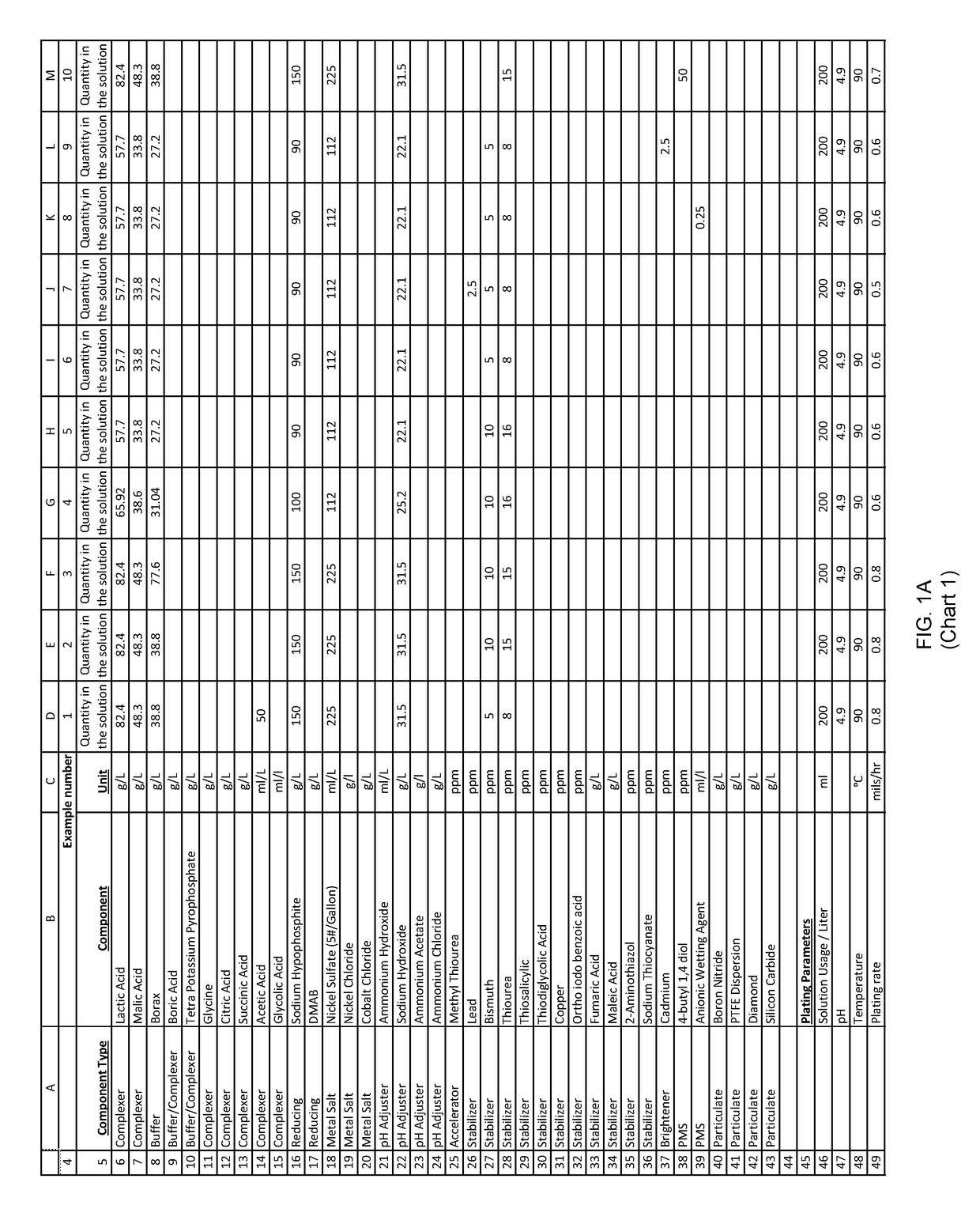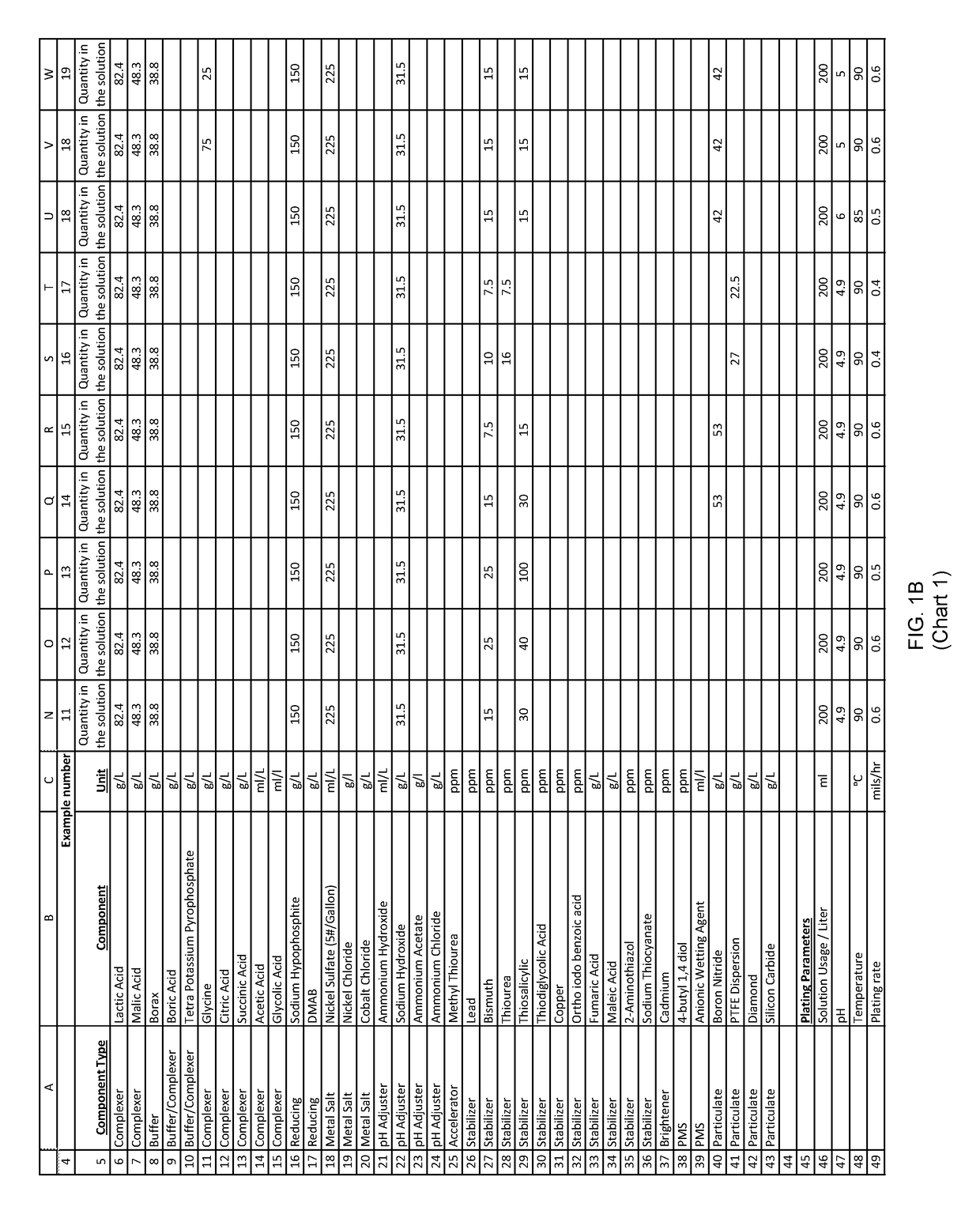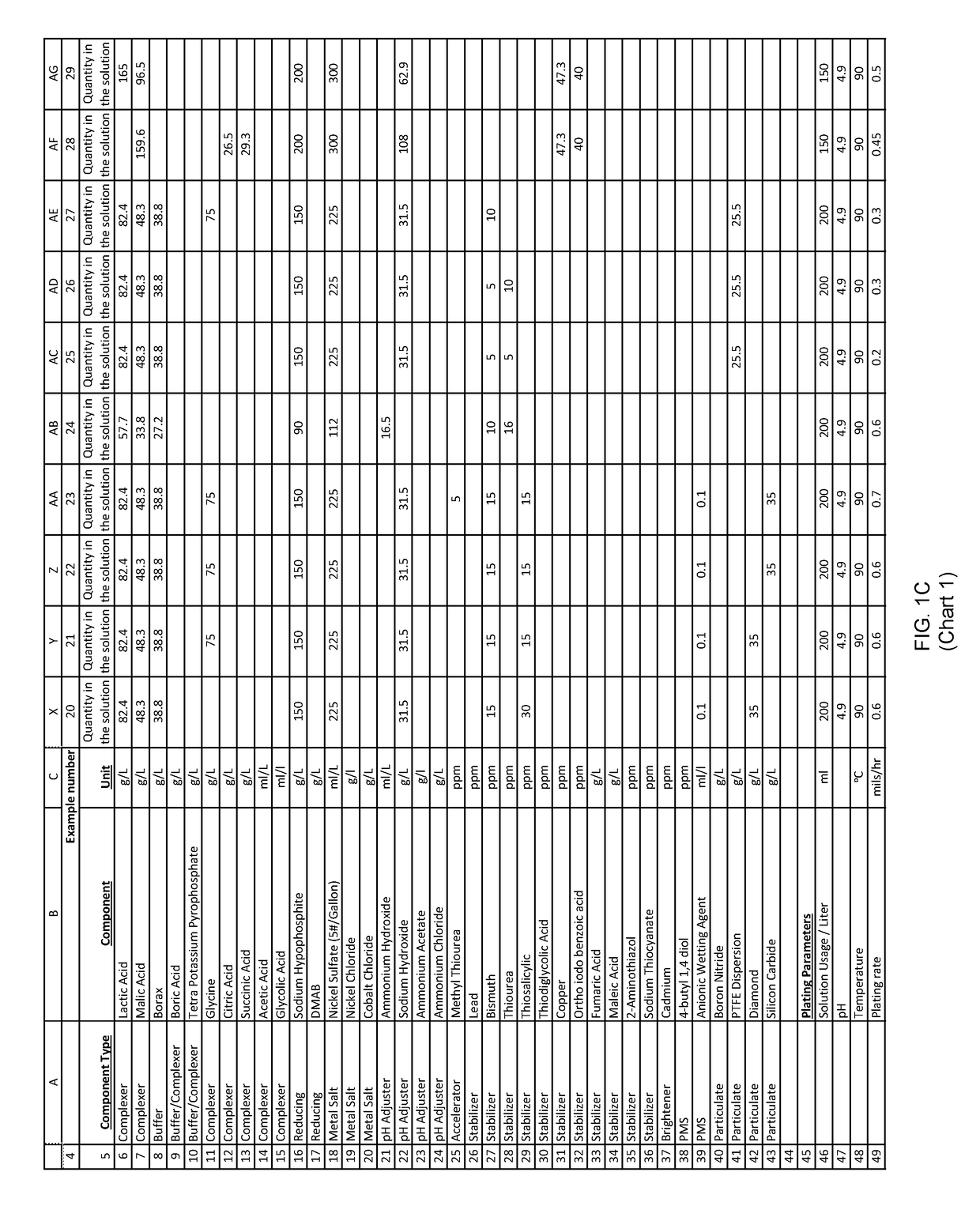Plating bath solutions
- Summary
- Abstract
- Description
- Claims
- Application Information
AI Technical Summary
Benefits of technology
Problems solved by technology
Method used
Image
Examples
example 1
[0202]An aqueous solution was prepared with: nickel sulfate, sodium hypophosphite and other ingredients useful in electroless nickel plating.
[0203]200 ml of the above solution was diluted to one liter with deionized water to form an electroless plating bath. Mild agitation was introduced to the bath. The pH of this bath was adjusted to with ammonium hydroxide. The bath was then heated to an operating temperature. Titration analyses indicated a nickel concentration of 6 grams per liter and a hypophosphite concentration of 30 grams per liter.
[0204]A substrate was pretreated and immersed in the plating bath. The substrate was left in the plating bath for 60 minutes, during which time the pH, temperature and agitation maintained, and the plating reaction remained evident from the bubbles evolving from the substrate.
[0205]After 60 minutes of plating time, the substrate was removed and both the substrate and bath were analyzed.
[0206]The substrate exhibited a uniform 20 microns thick nicke...
example 2
[0209]An aqueous solution was prepared with: nickel sulfate, sodium hypophosphite and other ingredients useful in electroless nickel plating.
[0210]200 ml of the above solution was diluted to one liter with deionized water to form an electroless plating bath. Mild agitation was introduced to the bath. The pH of this bath was adjusted to with ammonium hydroxide. The bath was then heated to an operating temperature. Titration analyses indicated a nickel concentration of 3 grams per liter and a hypophosphite concentration of 30 grams per liter.
[0211]A substrate was pretreated and immersed in the plating bath. The substrate was left in the plating bath for 60 minutes, during which time the pH, temperature and agitation maintained, and the plating reaction remained evident from the bubbles evolving from the substrate.
[0212]After 60 minutes of plating time, the substrate was removed and both the substrate and bath were analyzed.
[0213]The substrate exhibited a uniform 19 microns thick nicke...
example 3
[0216]An aqueous solution was prepared with: nickel sulfate, sodium hypophosphite and other ingredients useful in electroless nickel plating. This solution had a pH of about 6.0.
[0217]150 ml of the above solution was diluted to one liter with deionized water to form an electroless plating bath. Mild agitation was introduced to the bath. The pH of this bath was about 6.0 as made up above. The bath was then heated to an operating temperature. Titration analyses indicated a nickel concentration of 5 grams per liter and a hypophosphite concentration of 25 grams per liter.
[0218]A substrate was pretreated and immersed in the plating bath. The substrate was left in the plating bath for 60 minutes, during which time the temperature and agitation maintained, and the plating reaction remained evident from the bubbles evolving from the substrate.
[0219]After 60 minutes of plating time, the substrate was removed and both the substrate and bath were analyzed.
[0220]The substrate exhibited a unifor...
PUM
| Property | Measurement | Unit |
|---|---|---|
| Temperature | aaaaa | aaaaa |
| Fluorescence | aaaaa | aaaaa |
| Phosphorescence quantum yield | aaaaa | aaaaa |
Abstract
Description
Claims
Application Information
 Login to View More
Login to View More - R&D
- Intellectual Property
- Life Sciences
- Materials
- Tech Scout
- Unparalleled Data Quality
- Higher Quality Content
- 60% Fewer Hallucinations
Browse by: Latest US Patents, China's latest patents, Technical Efficacy Thesaurus, Application Domain, Technology Topic, Popular Technical Reports.
© 2025 PatSnap. All rights reserved.Legal|Privacy policy|Modern Slavery Act Transparency Statement|Sitemap|About US| Contact US: help@patsnap.com



